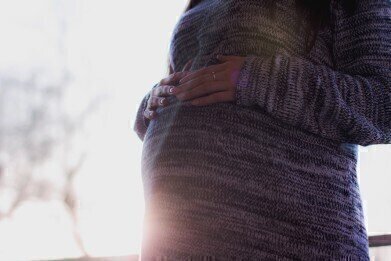Air Monitoring
Does Air Pollution Increase the Risk of Stillbirth?
Jul 11 2016
Following a review of 13 different studies on the potential effects that air pollution may have on pregnant women, it appears that there could be a direct link between poor air quality and the incidence of stillbirths.
Currently occurring at around one in every 200 births, stillbirths are defined by death after the initial six months of pregnancy but before birthing. There are on average 11 stillbirths in the UK every single day, and this latest study points to a link between the UK’s worsening air quality issues and this tragically high rate.
Babies most at risk in third trimester
The study looked at a number of different pollutants and found a causal link between them and stillbirths in the final trimester, including nitrogen oxides (NOx), nitrogen dioxide (NO2), sulphur dioxide (SO2), particulate matters 2.5 (PM2.5) and 10 (PM10) and ozone.
The authors of the study called for a new approach to air quality monitoring, tighter restrictions on industrial waste emissions and better fuel quality and vehicular emissions controls in order to reduce the risk as much as possible.
“Our results provide suggestive evidence that ambient air pollution is a risk factor for stillbirth. Pregnant women should be aware of the potential adverse effects of ambient air pollution, although the prevention against exposure to air pollutants generally requires more action by the government than by the individual,” stated the report.
“Policies such as control of vehicular emissions, fuel quality improvement and control of industrial waste emissions should be developed and implemented to reduce the risk of air pollutants.”
More research needed
Despite the growing body of evidence implicating air pollution in stillbirths, the authors stressed the need for further research to lend weight to the argument. Dr Marie Pedersen, who works at the Centre of Epidemiology and Screening in Denmark, articulated this need in an accompanying editorial.
“Stillbirth is one of the most neglected tragedies in global health today, and the existing evidence deserves additional investigation. If the evidence of an association between ambient air pollution and stillbirth is confirmed in future studies, it would be of major public health importance,” she explained.
“Although the reported summary effect estimates were relatively small, the ubiquitous nature of ambient air pollution exposure suggests that exposure to ambient air pollution may have a large population-attributable risk for stillbirth. Further studies with better measures of air pollution, potential confounders and effect modifiers, are highly recommended to confirm or refute that exposure to ambient air pollution triggers stillbirth.”
Though clean air in the UK has been a political objective for over 60 years, the nation is still being repeatedly fined by the EU for breaching legal limits of various contaminants through its emissions. As such, there is work to be done to ensure that future generations don’t pay for our own negligence and wasteful habits.
Digital Edition
IET 34.2 March 2024
April 2024
Gas Detection - Biogas batch fermentation system for laboratory use with automatic gas analysis in real time Water/Wastewater - Upcycling sensors for sustainable nature management - Prist...
View all digital editions
Events
Apr 22 2024 Hannover, Germany
Apr 22 2024 Marrakech, Morroco
Apr 23 2024 Kuala Lumpur, Malaysia
Apr 23 2024 Kintex, South Korea
Apr 23 2024 Edmonton, AB, Canada


















